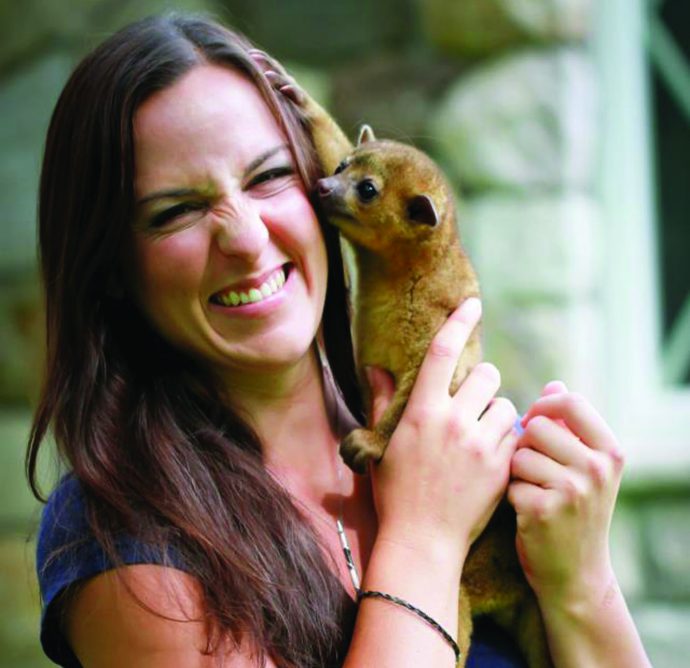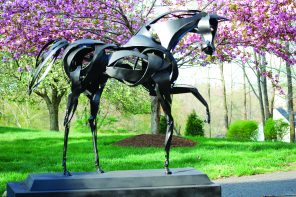Nicole Chillemi had already worked part time at Valley Cottage Animal Hospital for six years by 2004, when she graduated Mercy College. With a bachelor of science degree in her hands, she increased her hours to fulltime. When she could find time, she’d take side jobs bringing live animals to children’s birthday parties.
Then came the shortness of breath, a tightness in her chest and eventually a few major asthma attacks.
Her doctor told her the problem was severe allergies. Get rid of your pets, the doctor said, and find a new career path that didn’t involve animals.
“That just doesn’t work for me,” Chillemi says.
She was 22 and for the first time in her life felt she didn’t have a direction. Working with animals had always been the goal and even before she thought of career prospects, she related to them.
She refused to give up most of her pets – the dogs, chinchillas and reptiles. But, she left her job at the hospital, gave away her two goats because the hay was irritating her bronchial tubes and started contemplating jobs that didn’t involve working indoors with animals all day.
The waitressing gig didn’t last long. She started studying massage therapy and briefly toyed with the idea of turning canine massages into a career. But it was the birthday party side gig that had her imagination running, educating children about animals and how to be a responsible pet owner.
Today Chillemi lives in Pine Bush, N.Y., at the Happy Tales Animal Sanctuary, which she co-founded in 2005 after a year of soul-searching. She worked with therapists to ease her symptoms and handle her allergies. Now she has two cats, three dogs and two turtles in the house. Outside, there are five horses, two pigs that live under a deck, two foxes and a converted garage where exotic nondomestic animals rescued by the sanctuary live when it gets too cold for them outdoors.
The sanctuary is looking to raise money through donations to relocate, preferably from Ulster County to Putnam County on the other side of the Hudson River, where it would be accessible to a larger population and closer to Chillemi’s alma mater. She’s an adjunct faculty member there, teaching a restraint and handling class and co-teaching surgical nursing and small animal diseases classes. She plans to earn certification for horseback-riding to administer a new therapeutic riding program for children.
“The way the horse moves is similar to the way a human moves. It’s actually triggering muscles in the child to stay on,” she says.
A goal of hers is to make one aspect of her job a moot point. Many animals just do not make good pets, and Chillemi hopes that through education, potential owners think twice about making a commitment to an exotic or wild animal that they can’t properly raise. If there were no demand for animals like foxes, for example, they would not be sold by pet stores, she says.
“I tell people what it’s actually like to have them as a pet. Rule 1: If it has thumbs, it’s not a good pet.”
Chillemi’s work with children is not just about educating them to be responsible pet owners, but about developing a child’s strengths and sense of self, she says. In introducing animals to children, she actually has children relate stories to the animals or speak to them directly. The nonconfrontational, one-way discussion allows children a unique outlet to express themselves.
For more on Chillemi’s work, the sanctuary or to make a donation visit animalexperiences.com.




